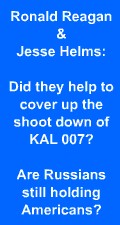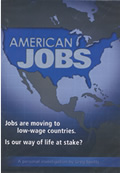Other
Yates
Articles:
Coming Soon
"TAKING
THE RED PILL"
THE
REAL MATRIX, PART 2
By
Steven Yates
December 7, 2004
NewsWithViews.com
Like most of academia�s tenured class, Professor Carroll Quigley of the School of Foreign Affairs at Georgetown University dumped on �conservatives.� In the Cold War environment of the mid-1960s, it was kosher to ridicule the McCarthyite idea that a legion of communists had infiltrated our government�and represented a dangerous leftist conspiracy run out of Moscow.
Quigley, after all, knew the truth. The real agenda was not run out of Moscow but from banking empires long established in New York City, London, and elsewhere. These empires had actually bankrolled communism. They had maneuvered nations into wars by secretly financing both sides and then setting them against one another. Quigley�s 1,300-plus page tome Tragedy and Hope: A History of the World in Our Time mocks the conspiracy theory of the anticommunists as a �myth� but then suddenly offers one of the most extraordinary revelations ever penned by someone of Quigley�s stature:
This myth, like all fables, does in fact have a modicum of truth. There does exist, and has existed for a generation, an international Anglophile network which operates, to some extent, in the way the radical Right believes the Communists act. In fact, this network, which we may identify as the Round Table Groups, has no aversion to cooperating with the Communists, or any other groups, and frequently does so. I know of the operations of this network because I have studied it for twenty years and was permitted for two years, in the early 1960s, to examine its papers and secret records. I have no aversion to it or to most of its aims and have, for much of my life, been close to it and to many of its instruments. I have objected, both in the past and recently, to a few of its policies�but in general my chief difference of opinion is that it wishes to remain unknown, and I believe its role in history is significant enough to be known. (p. 950, emphasis mine)
Professor Quigley was openly telling us of a hidden power system�a super-elite�operating behind the scenes. He identified it as �the Round Table Groups.� These controllers �wish to remain unknown� as they work out their plans for the world. What are their plans for the world? Quigley elaborated:
[T]he powers of financial capitalism had another far reaching aim, nothing less than to create a world system of financial control in private hands able to dominate the political system of each country and the economy of the world as a whole. This system was to be controlled in a feudalist fashion by the central banks of the world acting in concert, by secret agreements, arrived at in frequent private meetings and conferences. The apex of the system was the Bank for International Settlements in Basle, Switzerland, a private bank owned and controlled by the world�s central banks which were themselves private corporations. The growth of financial capitalism made possible a centralization of world economic control and use of this power for the direct benefit of financiers and the indirect injury of all other economic groups. (p. 324)
The chief problem of American political life for a long time has been how to make the two Congressional parties more national and international. The argument that the two parties should represent opposed ideals and policies, one, perhaps, of the Right and the other of the Left, is a foolish idea acceptable only to doctrinaire and academic thinkers. Instead, the two parties should be almost identical, so that the American people can �throw the rascals out� at any election without leading to any profound or extensive shifts in policy� [E]ither party in office becomes in time corrupt, tired, unenterprising, and vigorless. Then it should be possible to replace it, every four years if necessary, by the other party, which will be none of those things but will still pursue, with new vigor, approximately the same basic policies. (pp. 1247-48)
Quigley identified shadowy organizations such as the Council on Foreign Relations based in New York and the Royal Institute of International Affairs based in London as front organizations for the Round Table Groups he mentioned�sometimes specific individuals such as J.P. Morgan, the banking titan. He claimed to have studied the super-elite�s secret records for twenty years, and to identify with its goals and most of its policies. His only major disagreement was with its desire to �remain unknown.� This disagreement got Tragedy and Hope into trouble. Its publisher, Macmillan, allowed the book to disappear despite thousands of back orders. Inquirers were told it had gone out of print. In addition to the disappearance of nearly every copy, the original plates were destroyed, making new printings impossible given the technology of the time. There can be no doubt of an attempt to suppress the book. Quigley lost control of his own work, as pirated editions began to appear. He wrote near the end of his life that the book �has brought me many headaches as it apparently says something that powerful people don�t want known.� A smaller companion volume, The Anglo-American Establishment, failed to find a publisher during his lifetime.
Quigley�s account of these organizations and their development, both in Tragedy and Hope and in The Anglo-American Establishment is authoritative and definitive. Under no circumstances can we dismiss Quigley as a �conspiracy nut.� Quigley was established, with a solid reputation as a macrohistorian: a historian specializing in the larger, long-term tendencies governing the rise and development of entire civilizations. Earlier, he had written an important and very well-received work of macrohistory, The Evolution of Civilizations. Carroll Quigley would not have deliberately sabotaged an ideal career, one with enormous perks, privileges, and access to the centers of influence. There can be no reasonable doubt that he knew what he was talking about.
Quigley became mentor to one William Jefferson Clinton, and helped Clinton get the Rhodes Scholarship that sent him to Oxford. (We will say more about Cecil Rhodes and Rhodes Scholarships below.) Quigley was the one person Clinton would thank by name after assuming the presidency in 1993. That was the year our nation took a quantum leap towards globalism: beginning with so-called �free trade� agreements such as the North American Free Trade Agreement (NAFTA), the National Partnership for Reinventing Government, and the President�s Council on Sustainable Development put in place in response to a United Nations �soft law� document called Agenda 21.
What results from taking Quigley seriously is a quite different picture of American and Western political history from what we get from history and political science textbooks�and of the political process from what we get from the mainstream media. It suggests that the conventional picture, in which the history of the past hundred years just a series of series of unfortunate accidents and blunders, is a masquerade�and partly the result of the hijacking of academic disciplines such as history. We come to realize that most Americans are indeed plugged into a �matrix��created not by a malevolent sci-fi machine, of course, but by controls over their education and the information that reaches them. They are �plugged in� as children, attending first public schools and then colleges and universities. They �learn� to trust government information, the academic-bureaucratic complex, and the mainstream news media. This creates the �real matrix.� A few, like Neo in The Matrix, may suspect that something is wrong. But fear of being branded paranoid usually ensures their silence. If they write down their suspicions and publish them, they are ignored. There is, after all, enormous loyalty to the fabricated world. Those �plugged in� have their own gatekeeping systems. Certain ideas�e.g., those having to do with �conspiracy theories��are automatically screened out. The super-elite then need not work so hard, or even remain entirely secret. If the schools do their job right, its members need not micromanage every institution to make sure everyone follows the rules. The power system runs on a kind of autopilot.
1, <-- Back - Next, part --> 3, 4, 5, 6, 7
� 2004 Steven Yates -
All Rights Reserved
Steven Yates is an independent scholar who earned his Ph.D. in philosophy in 1987. He is the author of Civil Wrongs: What Went Wrong With Affirmative Action (San Francisco: ICS Press, 1994), Worldviews: Christian Theism versus Modern Materialism (Columbia, SC: Worldviews Project, due out in early 2005); and a co-author of The Free Person and the Free Market (Lanham, Md.: Lexington Books, 2002).
He is also an adjunct scholar with the Ludwig von Mises Institute. He has also worked as a clerk in a state agency, written obituaries for the local newspaper, earned a public health degree from the University of South Carolina (1999), done a stint as the writer, editor and consultant for the South Carolina Cancer Research Network writing the organization's Cancer Research Needs Report (2004), and worked as a customer service representative doing computer technical support.
He has other projects underway, including a science fiction novel. Most recently he joined the Stratia Corporation as a consultant and formed the Worldviews Project to further public discussion of the issues between the Christian worldview and that of modern materialism. He lives in Columbia, South Carolina.
E-Mail syates2@bellsouth.net.
Quigley, after all, knew the truth. The real agenda was not run out of Moscow but from banking empires long established in New York City, London, and elsewhere. These empires had actually bankrolled communism. They had maneuvered nations into wars by secretly financing both sides and then setting them against one another.








